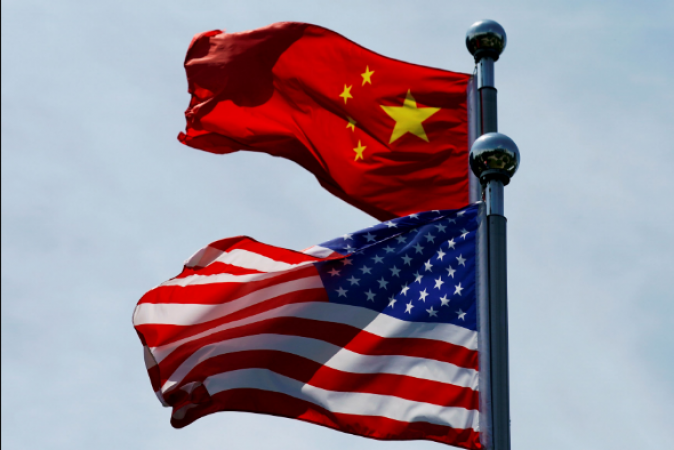
UNITED STATES: Many analysts anticipate a "wolf warrior" diplomat when Qin Gang arrives in Washington as Beijing's ambassador, raising already high bilateral tensions due to Beijing's disappointment that US President Joe Biden will succeed his predecessor. Will not withdraw many of the harsh policies.
As he departed to assume his new position as Beijing's foreign minister, Qin had questions about the United States despite former President Donald Trump's sanctions and tariffs against China and the new US leader's search for involvement. had some complimentary words to say, if not outright anti-Chinese like Aukas.
We may now be looking at a new era of Sino-US conflict that has begun under Trump, the first US president to make China a central theme of his campaign message.
Also Read: Budget 2023: Rationalisation in long-term capital gains tax on the anvil
Qin's departure comes halfway through Biden's first term as president and ushers in a new US Congress that is expected to be anti-China.
Many analysts believed that Trump's rhetoric was just an election campaign front that would eventually evolve into something more diplomatic, especially when it came to President Xi Jinping, given his apparent admiration for strong, autocratic leaders.
And for a moment it seemed like this was the way to follow. Xi immediately congratulated Trump on his landslide victory over his Democratic rival Hillary Clinton.
Within weeks of Trump's presidency, Xi also traveled to Florida for their first meeting at the president's Mar-a-Lago resort. The two decided to launch new bilateral discussions on many of their most contentious issues, including trade, intellectual property rights and cyber security, as they strolled the grounds of the resort while being cooled by an Atlantic Ocean breeze.
The goodwill, however, did not last. Trump instructed the US Trade Representative at the time, Robert Lighthizer, to launch a formal investigation into whether China's intellectual property laws were "unfair or discriminatory" and that Beijing would act fast enough to satisfy him.
Less than a year later, in the hope that active engagement with China would force reform, Trump launched a bilateral trade conflict that the Biden administration has shown no interest in ending.
Also Read: Union Budget 2023-24: Space industry seeks PLI scheme, tax incentives
The COVID-19 pandemic, which occurred in Trump's final year in office, only served to widen the gulf between the two countries, as instead of working together to stop it, Washington blamed the origin of the pathogen on Beijing. accused of hiding
Biden began his term with a speech on foreign policy, in which he warned that the EU and the US must prepare for "long-term strategic competition with China", extending an olive branch in a picturesque setting Far from being what Trump initially did. his administration.
Additionally, Biden reiterated claims made by the Trump administration that China is overturning Hong Kong's autonomy, engaging in genocide in Xinjiang, and violating its own promise not to militarize outposts in the South China Sea .
And while many analysts believed relations between the two countries could deteriorate through direct military conflict, Nancy Pelosi's trip to Taipei, in defiance of Beijing's warnings, brought the two sides to the brink of such a scenario.
Biden initially tried to dissuade Pelosi, but after a detour in Taipei that included a meeting with the chairman of Taiwan Semiconductor Manufacturing Co., he made no apologies to Beijing.
That visit to the largest maker of contract chips in the world brought to light another complex bilateral issue that Qin had to deal with.
The Biden administration announced the latest in a series of measures intended to block shipments of chips and chip-making technology that could be useful in China's military manufacturing and efforts to dominate key industries, which many analysts Saying "October". Wonder."
While these sanctions have caused problems for China, Beijing's response has been muted, contrary to what we might have inferred from the likes of Qin and his allies.
They failed to set up a one-on-one meeting of Biden and Xi in Indonesia in November by agreeing that US Secretary of State Antony Blinken would visit China for the first time.
The relative stability of bilateral relations in the face of more aggressive US policies towards China has not been adequately explained by Qin or his ministry.
As China's ambassador to the European Union, Fu Kang, acknowledged last month, Beijing may be attempting to win back friends after failing to condemn Russia's war against Ukraine.
Xi has acknowledged some restrictions on his backing of Vladimir Putin, the president of Russia. As Qin takes on his new role, it remains to be seen if the US-China relationship will remain in calmer waters.
He might be able to manage relations with the Biden administration, but now that the Republicans are in charge of the House of Representatives, it seems like the US Congress is taking a harder line toward Beijing.
The chamber voted to create a select committee on US-China strategic competition as one of its first items of business after California Representative Kevin McCarthy's chaotic elevation to the House speakership, signalling its determination to keep China at the top of the agenda for the new Congress.
Watch to see how much trouble US lawmakers give Qin.
Also Read: Wholesale inflation reaches lowest level in 22 months
Industry insiders predict that geopolitical concerns and rising borrowing costs will continue to dampen US investors' enthusiasm for transactions involving mergers and acquisitions, private equity, and venture funding in China this year.
The number of deal announcements involving US-based acquirers or investors related to Chinese targets decreased from 96 between January and November in 2021 to 45 during the same period last year, according to data from GlobalData, a London-based information services company.